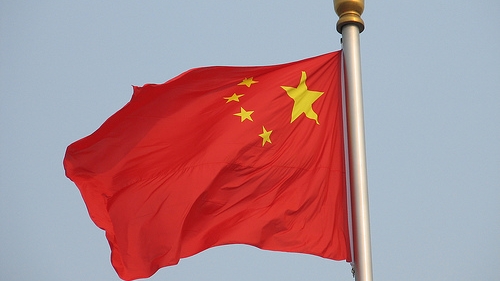
BofAML predicts a China-wide roll out of property tax in 2016-2017
It'll be a big-time long-term "negative".
According to BofAML, in a high-profile forum attended by many senior officials on Mar 23-25 in Beijing, the newly appointed Minister of Finance, LOU Ji-wei, said that fiscal reform will spearhead China's current round of reforms.
At the same forum, Vice Minister of Land and Resources, HU Cun-zhi, suggested that China should impose a property tax on home ownership beyond 2 units because he thinks that the way to address China's property problem is by dampening investment demand rather than by increasing supply.
BofAML expects a nationwide rollout of the property tax to commence sometime during 2016-2017, which should be a major long-term negative to the property market.
Here's more from BofAML:
According to Mr. HU, over the past eight years, the government has supplied enough land to build some 8.4bn sqm of housing (based on a plot ratio of 1.5x). Assuming 30 sqm per capita, this can house 292mn people, more than the 167mn urbanized during this period.
This is in line with our view that, notwithstanding some of the supply was to meet upgrade demand, construction has, in general, run ahead of urbanization needs.
So far, Shanghai and Chongqing are testing a property tax on a small scale, based on various factors including residency, per-capita living space, price level and location.
The current scheme appears overly complicated and difficult to implement. On the other hand, Mr. Hu's proposal seems much more practical (albeit with some unintended consequences potentially, e.g., more demand for expensive/bigger apartments).
So far, the government has not announced a timeline for a nationwide rollout yet. We believe that a pre-requisite is to connect major cities' property ownership databases. As part of the State Council's announcement of its latest property tightening policies in early March, it said that the government will set up an integrated database for prefecture or above cities (approx. 300) by 2015.
Given that the next government reshuffle will occur in early 2018, we believe that the likelihood of the tax's rollout during 2016/17 is high. Before 2016, there should be a series of pilot tests in more cities across the country.
Excessive savings is at the heart of the "imbalance" problem facing China, and unbridled desire to save via owning properties (by the rich) or fear of missing out (by the middle class or the poor) has been a major factor behind the high savings rate. A well-designed property tax will be one of the toughest but also most fruitful reforms that the new government can do, in our opinion.
























 Advertise
Advertise






